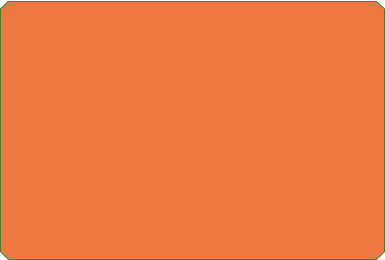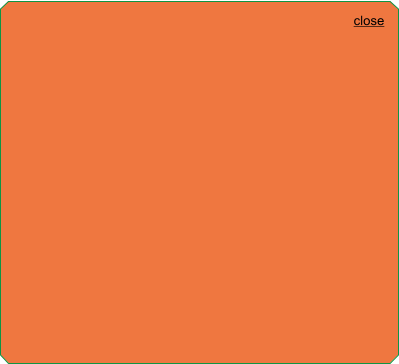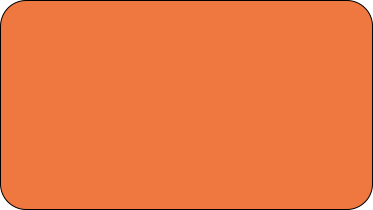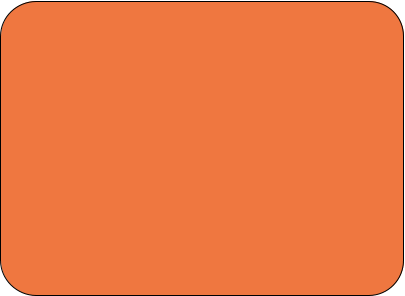



 Conferences & Events Ltd | Po Box 1254 | Nelson 7010 | Ph: 03 546 6022 | victory@confer.co.nz
Programme as at June 2011 (subject to change)
Print version can be found here
Presentations can be found linked to the presenters name
Conferences & Events Ltd | Po Box 1254 | Nelson 7010 | Ph: 03 546 6022 | victory@confer.co.nz
Programme as at June 2011 (subject to change)
Print version can be found here
Presentations can be found linked to the presenters name

















 2.30pm
3.30pm
4.15pm
4.30pm
5.30pm
7.00pm
8.00pm
Registration opens - Victory Village Community Centre
Mihi /Welcome
Hon Tariana Turia, Minister of the Community Voluntary Sector
Afternoon Tea
Experiencing the Victory magic - on campus at Victory
From values to volleyball! Guided groups around the campus.
Hangi served at Victory Community Centre
Victory Village Story; Mark Brown and Kindra Douglas
What sparked the energy at Victory and how and why has
change come about. With a narrative by two of the leaders
who have been involved through the last decade, with a focus
on learning.
End of day one
2.30pm
3.30pm
4.15pm
4.30pm
5.30pm
7.00pm
8.00pm
Registration opens - Victory Village Community Centre
Mihi /Welcome
Hon Tariana Turia, Minister of the Community Voluntary Sector
Afternoon Tea
Experiencing the Victory magic - on campus at Victory
From values to volleyball! Guided groups around the campus.
Hangi served at Victory Community Centre
Victory Village Story; Mark Brown and Kindra Douglas
What sparked the energy at Victory and how and why has
change come about. With a narrative by two of the leaders
who have been involved through the last decade, with a focus
on learning.
End of day one
 WEDNESDAY 27th July @ Victory Village, Community Centre, Totora Street,
Victory Square, Nelson
WEDNESDAY 27th July @ Victory Village, Community Centre, Totora Street,
Victory Square, Nelson
 THURSDAY 28th July @ Nelson College for Girls, Trafalgar Street, Nelson
THURSDAY 28th July @ Nelson College for Girls, Trafalgar Street, Nelson

 8.45am
9.00am
10.15am
10.45am
Noon
1.00pm
3.00pm
3.30pm
5.15pm
7.00pm
Welcome to the Forum - Mark and Kindra
Plenary: 'Why Family Centred, Community Led
Development?'
‘What it means to be involved in Community Development; a
range of perspectives’
•
Di Grenell, Director, Whanau Ora, Te Puni Kokiri'
•
John Forbes, Vice President of Local Govt NZ and Mayor of
Opotiki
•
Carl Davidson, Chief Families Commissioner
•
John Prendergast CEO Community Trust Southland
Morning Tea
Home Groups with Facilitators These facilitated Home
Groups will provide a “base camp” for participants to debrief
and update each other about their experiences as the forum
unfolds.
Lunch
CONCURRENT STREAMS: NZ examples of getting started in
Family Centred Community Led Development.
Each concurrent stream explores a different “setting” or
starting point for family- centred, community- led
development. There will be either two or three brief
presentations in each workshop, followed by a facilitated
discussion about common themes and learning which have
emerged.
•
Schools; Mark Brown and Wendy Taylor, Victory Primary
School
•
Local Government; Mariska Wouters LGNZ Craig
Campbell Smart, New Plymouth DC
•
Young People/Rangatahi; Judy Kumeroa, Stone Soup
Ron Kjestrup & Deanne Patrick YMCA Nelson
•
Weaving Families & Communities Together; Sue Rei,
Great Start Taita
•
Environment; Kari Beavan, Rakiura/Stewart Island
•
Hapu/Whanau; Louisa Erickson-Prout, Whakatohea Maori
Trust Board and Colleen Tuuta & Di Grenell, Director,
Whanau Ora, Te Puni Kokiri
•
Health and Wellbeing; Pat Webster, Penny Molnar &
Leanne Curtis, Victory Community Health
•
Recreation/Culture/Arts; JIll Walker Travelling
Tuataras, Laurie Durand Youth Projects Trust
Afternoon Tea
CONCURRENT SKILLS WORKSHOPS:
These Workshops will be led by people with expertise about
useful skills/knowledge about family-centred and/or
community-led development.
1.
Capturing & Communicating: Evaluation & Reporting
Community Change; Denise Bijoux Inspiring
Communities
2.
What we're learning about Community Led
Development; Megan Courtney and Barbara MacLennan,
Inspiring Communities
3.
Economic Development & Enterprise; Di Jennings
4.
Working between the sectors; Ian Leader, Manager
Community Engagement, Westpac (NZ), Paul Prestidge
5.
Lived Experience - Families Panels Discussion Group;
Melanie McNatty Family Works,, Gill Pirikahu Whakauae
Research
6.
Research as Practice: Stories from the field; David
Stuart Families Commission, Bruce Maden Te Aroha Noa,
Sue Copas
7.
Ways of Connecting: 7. Rebecca Harrington 1 & 2 & 3
Lifewise &Sally Christie from Thames Linking Communities
Indianapolis Neighborhood Resource Center:
http://www.inrc.org/resources/publications/ (the asset-
based community development Organiser’s workbook can
be downloaded here 11MB)
8.
Funding Sustainability; Pat Webster, Victory Community
Health Centre, Iain Hines J R McKenzie Trust, Southland
Community Trust/Philanthropy NZ, and Hugh Lawrence,
OCVS
Home Group with Facilitators
Forum Dinner - Entertainment by Mosaic World Choir
Mosaic World Choir is famous in Nelson for its culturally
diverse acapella singing. Conducted by Shannel Courtney up
to 40 singers meet weekly to sing and practise for various
community performances, Race Unity Day being one of the
choir’s favourites. Whether it is African, Pasific Island,
Georgian or soul, Mosaic brings the colour and strength of
these songs alive in 4 part harmony. Mosaic World Choir will
perform between the dinner and dessert and ready us for a
celebratory evening of dance and song.
8.45am
9.00am
10.15am
10.45am
Noon
1.00pm
3.00pm
3.30pm
5.15pm
7.00pm
Welcome to the Forum - Mark and Kindra
Plenary: 'Why Family Centred, Community Led
Development?'
‘What it means to be involved in Community Development; a
range of perspectives’
•
Di Grenell, Director, Whanau Ora, Te Puni Kokiri'
•
John Forbes, Vice President of Local Govt NZ and Mayor of
Opotiki
•
Carl Davidson, Chief Families Commissioner
•
John Prendergast CEO Community Trust Southland
Morning Tea
Home Groups with Facilitators These facilitated Home
Groups will provide a “base camp” for participants to debrief
and update each other about their experiences as the forum
unfolds.
Lunch
CONCURRENT STREAMS: NZ examples of getting started in
Family Centred Community Led Development.
Each concurrent stream explores a different “setting” or
starting point for family- centred, community- led
development. There will be either two or three brief
presentations in each workshop, followed by a facilitated
discussion about common themes and learning which have
emerged.
•
Schools; Mark Brown and Wendy Taylor, Victory Primary
School
•
Local Government; Mariska Wouters LGNZ Craig
Campbell Smart, New Plymouth DC
•
Young People/Rangatahi; Judy Kumeroa, Stone Soup
Ron Kjestrup & Deanne Patrick YMCA Nelson
•
Weaving Families & Communities Together; Sue Rei,
Great Start Taita
•
Environment; Kari Beavan, Rakiura/Stewart Island
•
Hapu/Whanau; Louisa Erickson-Prout, Whakatohea Maori
Trust Board and Colleen Tuuta & Di Grenell, Director,
Whanau Ora, Te Puni Kokiri
•
Health and Wellbeing; Pat Webster, Penny Molnar &
Leanne Curtis, Victory Community Health
•
Recreation/Culture/Arts; JIll Walker Travelling
Tuataras, Laurie Durand Youth Projects Trust
Afternoon Tea
CONCURRENT SKILLS WORKSHOPS:
These Workshops will be led by people with expertise about
useful skills/knowledge about family-centred and/or
community-led development.
1.
Capturing & Communicating: Evaluation & Reporting
Community Change; Denise Bijoux Inspiring
Communities
2.
What we're learning about Community Led
Development; Megan Courtney and Barbara MacLennan,
Inspiring Communities
3.
Economic Development & Enterprise; Di Jennings
4.
Working between the sectors; Ian Leader, Manager
Community Engagement, Westpac (NZ), Paul Prestidge
5.
Lived Experience - Families Panels Discussion Group;
Melanie McNatty Family Works,, Gill Pirikahu Whakauae
Research
6.
Research as Practice: Stories from the field; David
Stuart Families Commission, Bruce Maden Te Aroha Noa,
Sue Copas
7.
Ways of Connecting: 7. Rebecca Harrington 1 & 2 & 3
Lifewise &Sally Christie from Thames Linking Communities
Indianapolis Neighborhood Resource Center:
http://www.inrc.org/resources/publications/ (the asset-
based community development Organiser’s workbook can
be downloaded here 11MB)
8.
Funding Sustainability; Pat Webster, Victory Community
Health Centre, Iain Hines J R McKenzie Trust, Southland
Community Trust/Philanthropy NZ, and Hugh Lawrence,
OCVS
Home Group with Facilitators
Forum Dinner - Entertainment by Mosaic World Choir
Mosaic World Choir is famous in Nelson for its culturally
diverse acapella singing. Conducted by Shannel Courtney up
to 40 singers meet weekly to sing and practise for various
community performances, Race Unity Day being one of the
choir’s favourites. Whether it is African, Pasific Island,
Georgian or soul, Mosaic brings the colour and strength of
these songs alive in 4 part harmony. Mosaic World Choir will
perform between the dinner and dessert and ready us for a
celebratory evening of dance and song.
 FRIDAY 29th July @ Nelson College for Girls, Trafalgar Street, Nelson
FRIDAY 29th July @ Nelson College for Girls, Trafalgar Street, Nelson

 9.00am
11.00am
11.30am
1.00pm
1.45pm
2.30pm
3.15pm
Working Together for Family Centred, Community-Led
Development David Hanna 1 & 2 will lead a World cafe
conversation exploring how change occurs when we share the
goal of a family centred, community-led development.
Morning Tea
Drawing the Strings Together and Looking to the Future –
Thoughts and a Conversation Shifts we are seeing and what
more do we do to accelerate family-centred community-led
development. Helen Watson, Penny Hulse, Megan Courtney,
Kim Workman. Facilitator David Hannan
Boxed Lunch
Home Group:A Chance to identify learning together, share
highlights and steps to take when returning to community and
work development
Focus on the Way Forward - Sharing the Gems; A final
session that brings together implications for policy and practice
around family centred, community-led development. What does
this mean for all participants and sectors? Facilitator: David
Hanna
Poroporoaki - Closing
9.00am
11.00am
11.30am
1.00pm
1.45pm
2.30pm
3.15pm
Working Together for Family Centred, Community-Led
Development David Hanna 1 & 2 will lead a World cafe
conversation exploring how change occurs when we share the
goal of a family centred, community-led development.
Morning Tea
Drawing the Strings Together and Looking to the Future –
Thoughts and a Conversation Shifts we are seeing and what
more do we do to accelerate family-centred community-led
development. Helen Watson, Penny Hulse, Megan Courtney,
Kim Workman. Facilitator David Hannan
Boxed Lunch
Home Group:A Chance to identify learning together, share
highlights and steps to take when returning to community and
work development
Focus on the Way Forward - Sharing the Gems; A final
session that brings together implications for policy and practice
around family centred, community-led development. What does
this mean for all participants and sectors? Facilitator: David
Hanna
Poroporoaki - Closing


 "Everyone Matters"
"Seize the Moment"
"Everyone Matters"
"Seize the Moment"

 Follow us on:
Find us on:
Follow us on:
Find us on:









Getting started with Iwi and Hapu
The Stream Leader is Louisa Erickson, Iwi/ Community
Development Project leader for Whakatohea Maori Trust
Board.
Te Whakatōhea Iwi has recently embarked on a significant
journey that, it is hoped, will take it from a continuing place
of loss to a more hopeful one of recovery and well-being. The
journey has began with a wellbeing survey of 750 of its tribal
members living in Opotiki and is expected to shift the iwi
away from the pain of historical trauma, through a period of
change and reflection towards a state of well being
The survey information was gathered through face-to-face
interviews with 750 members of Whakatōhea whānau who
were 15 years or older and living in the immediate Ōpōtiki
area. The purpose of the survey was to collect information
about the wellbeing of Whakatōhea iwi members and was
unusual in its departure from the more typical approach of
reporting on Māori quality of life which would normally focus
on the position of Māori compared to wider New Zealand.
The final report has provided a snapshot of how we see
ourselves as whanau, hapü and iwi, how we influence and
determine the fulfilment of our potential, how we express our
uniqueness and creativity, and how we influence the design of
the systems we live in, health, education, economy and
environment.
He Oranga o te rohe o te Whakatōhea wellbeing survey will
provide the baseline from which the iwi will develop six
interconnected strategic cultural, health, education, economic,
social and environmental plans.
Louisa is a member of the Whakatōhea Iwi/Community
Development team responsible for overseeing the iwi planning
process which will involve creating new and strategic
alliances, researching and collecting a significant amount of
information for hapū wananga, recruiting people with the
required skills and the necessary resources to pay them.
Whakatohea people realise they will never achieve a state of
well-being without some form of radical transformation at the
family and community level and so this journey is about
learning what works in communities, about cultural
revitalisation and its impacts, about resiliency and resistance,
about gender, youth, about whānau dynamics, health
knowledge and behaviour change, about decolonization and
Māori and iwi development.
close
Working Between the Sectors
The Stream Leader is Ian Leader, Manager Community
Engagement, Westpac (NZ)
Traditional roles, responsibilities and relationships between
and within the sectors
are changing. Core behaviours and philosophies that
previously defined our
organisations are also changing. It is an exciting time.
‘Working Between the Sectors’ explores these changing
dynamics and the
opportunities for working more closely together.
Environment
The Stream Leader is Kari Beavan, Rakiura/Stewart Island
This workshop will focus on the reciprocal relationship
between the role our families can play in conserving and
enhancing our environment, and the role that our
environment can play amongst our families. We will discuss
the importance of our environment to the development of
our sense of self, of pride and our connection to our place;
to the social wellbeing of communities worldwide and to our
economic survival, with stories from the Stewart Island
community.
close

 Supported by:
Supported by:
Mosaic World Choir is famous in Nelson for its culturally
diverse acapella singing. Conducted by Shannel Courtney
up to 40 singers meet weekly to sing and practise for
various community performances, Race Unity Day being
one of the choir's favourites. Whether it is African, Pasific
Island, Georgian or soul, Mosaic brings the colour and
strength of these songs alive in 4 part harmony. Mosaic
World Choir will perform between the dinner and dessert
and ready us for a celebratory evening of dance and song.
close

Lived Experiences - Families Panels Discussion Group
Facilitators, Lynda Murray-Families Commission, Melanie
McNatty -Family Works Dunedin, Gill Pirikahu - Whakauae
Research for Maori Health and Development.
When the Families Commission established the Families
Panels Discussion Groups in 2008 the initial purpose was
twofold:
1.
To gather views relevant to the Commissions'
programmes and key projects
2.
To hear about emerging issues and maintain
awareness of the realities of families in New Zealand today
While these aims remain central, over the ensuing years
Families Panel Discussion Groups have developed
innovatively within the Commission's Engagement Charter
framework becoming an exemplar of family whanau centred
practice. As such, they not only contribute to the
Commission's knowledge base, the structured and
collaborative process by which they are undertaken also
supports practice and information sharing across the
participating community organisations. This in turn enables
service providers to strengthen their relationships with
families. We will explore all of this and more in this skills
workshop
close
What we’re learning about community-led
development
The Stream Leaders are Megan Courtney and Barbara
MacLennan, Inspiring Communities
Inspiring Communities is championing a national movement of
communities leading. Our purpose is to promote the
recognition, understanding of practice of community-led
development in Aotearoa New Zealand, and notice the
difference it makes.
We're focussed on learning about community-led development
and sharing this widely - including through publications such
as "What we are learning about CLD" (December 2010).
This interactive Workshop will focus on sharing (and
practicing) some of the themes and frameworks for change
we are finding useful. We'll also share lessons learned through
communities we are working alongside, and tell some local
stories. And we'll share some "top tips" for community-led
development.
Mosaic World Choir is famous in Nelson for its culturally diverse acapella singing. Conducted by Shannel Courtney up to 40 singers meet weekly to sing and practise for various community performances, Race Unity Day being one of the choir’s favourites. Whether it is African, Pasific Island, Georgian or soul, Mosaic brings the colour and strength of these songs alive in 4 part harmony. Mosaic World Choir will perform between the dinner and dessert and ready us for a celebratory evening of dance and song.
We (Sally Christie - Jigsaw and Rebecca Harrington – Lifewise/Takapuna
Methodist Church) will share about our work through exploring some
learning and discoveries from our respective projects: Thames Linking
Communities (TLC), which is one aspect of ‘Many Voices One Purpose’,
and Know Your Neighbours and Neighbours Day Aotearoa.
This interactive workshop will explore approaches towards the many
ways we can both connect into, and through, communities we work
alongside. We will also reflect on how our relationship with the ‘all-
important-self’ is an integral part of such processes.
Approaches such as Appreciative Inquiry and Asset-Based Community
Development have been important foundations of the projects we’re
connected with. We’ll explore these ways of connecting alongside others
during the workshop. We are all are teachers as well as learners, so
sharing your expertise and ideas around ways of connecting will be a
valued part of the conversation.
close
This session will look at some examples of research
processes that had an impact on organizational
development in innovative organisations. David Stuart
and Sue Copas from the Families Commission and
Bruce Maden from Te Aroha Noa Community Services
will share examples of research as practice from the
field. Some key questions for consideration are: What
is research as practice?; How can real research in
organisations meaningfully support practice?; how do
you do it?; and what sustains it?
close
Victory Community Health is at the heart of the Victory
Village. It is the hub for a holistic concept of health,
bringing together a range of health, recreational and
social services to address health in the broadest terms.
Leanne Curtis and Pat Webster will outline the
background to Victory Community Health, the successes
and the challenges of trying to develop a community
development model in a medical environment. Penny
Molnar has been the Be Well Community Nurse at the
Centre since its inception and she will outline her role
and particularly the way her work intertwines the centre,
the school population and the wider community.
Participants will be invited to share their own
organisation’s experiences with community health and
the workshop will seek to draw together examples of
innovation and success and to develop ideas to tackle
the challenges.
Close

Funding Sustainability
Pat Webster
Victory Community Health
Iain Hines
J R McKenzie Trust
Hugh Lawrence
Office for the Community and Voluntary
Sector, Department of Internal Affairs
How do you marry up the long term plans for your
organisation with the kind of funding available? This session
look at the way funding affects the development of viable long
term community development organisations. Pat Webster from
Victory Community Health will overview some of the
challenges the organisation has faced in pursuing holistic
approaches to community development. Hugh Lawrence will
overview work undertaken by the Office for the Community
and Voluntary Sector to develop the Code of Funding Practice.
This resource, developed in a joint community-government
process, promotes good funding policy and practice,
highlighting examples of ‘what works’. It also addresses what
communities and government need to know about each other
in a government funding environment. Ian Hines, from J R
McKenzie Trust, will discuss a philanthropic funding approach
to family centred community led development. The main part
of this workshop will provide an opportunity for participants to
discuss issues raised in the presentations, share their own
experiences with funding, and, in particular, identify useful
and innovative approaches.
Close
There’s a saying - “whanau/families who play together stay
together”!
Doing things together is a building block for families and
for communities – and creating opportunities through art,
culture and recreation is often a non-threatening way to get
started on helping to weave people together. At this
workshop Jill and Laurie will share some of their experiences
of family and community-building – sharing examples and
stories of what they have learned…through involving people
in performance, in creating public art, in outdoor activities
from reinvigorating waka sports, to following cultural
journeys, and teaching young people to envision and lead
community events…
And they will involve you in some activities which you can
easily use back in your own communities –as ways of
engaging and of nurturing family and community-led
development.
Close
Workshop: Weaving Families & Communities
Together
This is the journey so far of an established social
services organisation creating a space to reconnect,
disturb their systems and try out a different
relationship in the community.
We have no consumers, clients or customers.
Caring, connectedness is the aim. Reciprocity is part of
the recipe. We invite you to share our story and
consider alternative pathways for the future
Close
Evaluation is a sometimes dreaded but essential
aspect of programme design and delivery if we are to
capture and communicate the changes we make
through our initiatives, and to inform how our
initiatives might be most effective in a given place and
time. This workshop takes a utilisation approach to
evaluation and focuses on discovering ‘what kind of
evaluation and when’ across the lifecycle of initiatives.
It will discuss some emerging principles and
techniques to inform both the evaluations you may be
involved in and the reports you write using information
from these evaluations
Close
Nurturing Resilient Youth Presentation
Thursday 28th July 1.00 pm
(Concurrent Streams/ Rangitahi/Youth)
Resiliency is described as :“the ability to bounce back
from adversity, learn new skills, develop creative ways
of coping and becoming stronger”. Resiliency is built
through “positive connections between young people
and their communities; clear, consistent & appropriate
boundaries; life guiding skills; nurture & support;
purposes and expectations, and, meaningful
participation throughout the community”. (Milstein, M.
M., & Henry, D.A. (2008). Leadership for Resilient
Schools and Communities. Thousand Oaks, CA:
Corwin Press)
Nurturing Resilient Youth (NRY) is a community wide
initiative currently involving over 60 people.
This presentation will describe the development of
NRY and the process NRY will use to involve
neighbourhoods, agencies and individuals in building
resiliency in our communities and young people.
Close




 Conferences & Events Ltd | Po Box 1254 | Nelson 7010 | Ph: 03 546 6022 | victory@confer.co.nz
Programme as at June 2011 (subject to change)
Print version can be found here
Presentations can be found linked to the presenters name
Conferences & Events Ltd | Po Box 1254 | Nelson 7010 | Ph: 03 546 6022 | victory@confer.co.nz
Programme as at June 2011 (subject to change)
Print version can be found here
Presentations can be found linked to the presenters name

















 2.30pm
3.30pm
4.15pm
4.30pm
5.30pm
7.00pm
8.00pm
Registration opens - Victory Village Community Centre
Mihi /Welcome
Hon Tariana Turia, Minister of the Community Voluntary Sector
Afternoon Tea
Experiencing the Victory magic - on campus at Victory
From values to volleyball! Guided groups around the campus.
Hangi served at Victory Community Centre
Victory Village Story; Mark Brown and Kindra Douglas
What sparked the energy at Victory and how and why has
change come about. With a narrative by two of the leaders
who have been involved through the last decade, with a focus
on learning.
End of day one
2.30pm
3.30pm
4.15pm
4.30pm
5.30pm
7.00pm
8.00pm
Registration opens - Victory Village Community Centre
Mihi /Welcome
Hon Tariana Turia, Minister of the Community Voluntary Sector
Afternoon Tea
Experiencing the Victory magic - on campus at Victory
From values to volleyball! Guided groups around the campus.
Hangi served at Victory Community Centre
Victory Village Story; Mark Brown and Kindra Douglas
What sparked the energy at Victory and how and why has
change come about. With a narrative by two of the leaders
who have been involved through the last decade, with a focus
on learning.
End of day one
 WEDNESDAY 27th July @ Victory Village, Community Centre, Totora Street,
Victory Square, Nelson
WEDNESDAY 27th July @ Victory Village, Community Centre, Totora Street,
Victory Square, Nelson
 THURSDAY 28th July @ Nelson College for Girls, Trafalgar Street, Nelson
THURSDAY 28th July @ Nelson College for Girls, Trafalgar Street, Nelson

 8.45am
9.00am
10.15am
10.45am
Noon
1.00pm
3.00pm
3.30pm
5.15pm
7.00pm
Welcome to the Forum - Mark and Kindra
Plenary: 'Why Family Centred, Community Led
Development?'
‘What it means to be involved in Community Development; a
range of perspectives’
•
Di Grenell, Director, Whanau Ora, Te Puni Kokiri'
•
John Forbes, Vice President of Local Govt NZ and Mayor of
Opotiki
•
Carl Davidson, Chief Families Commissioner
•
John Prendergast CEO Community Trust Southland
Morning Tea
Home Groups with Facilitators These facilitated Home
Groups will provide a “base camp” for participants to debrief
and update each other about their experiences as the forum
unfolds.
Lunch
CONCURRENT STREAMS: NZ examples of getting started in
Family Centred Community Led Development.
Each concurrent stream explores a different “setting” or
starting point for family- centred, community- led
development. There will be either two or three brief
presentations in each workshop, followed by a facilitated
discussion about common themes and learning which have
emerged.
•
Schools; Mark Brown and Wendy Taylor, Victory Primary
School
•
Local Government; Mariska Wouters LGNZ Craig
Campbell Smart, New Plymouth DC
•
Young People/Rangatahi; Judy Kumeroa, Stone Soup
Ron Kjestrup & Deanne Patrick YMCA Nelson
•
Weaving Families & Communities Together; Sue Rei,
Great Start Taita
•
Environment; Kari Beavan, Rakiura/Stewart Island
•
Hapu/Whanau; Louisa Erickson-Prout, Whakatohea Maori
Trust Board and Colleen Tuuta & Di Grenell, Director,
Whanau Ora, Te Puni Kokiri
•
Health and Wellbeing; Pat Webster, Penny Molnar &
Leanne Curtis, Victory Community Health
•
Recreation/Culture/Arts; JIll Walker Travelling
Tuataras, Laurie Durand Youth Projects Trust
Afternoon Tea
CONCURRENT SKILLS WORKSHOPS:
These Workshops will be led by people with expertise about
useful skills/knowledge about family-centred and/or
community-led development.
1.
Capturing & Communicating: Evaluation & Reporting
Community Change; Denise Bijoux Inspiring
Communities
2.
What we're learning about Community Led
Development; Megan Courtney and Barbara MacLennan,
Inspiring Communities
3.
Economic Development & Enterprise; Di Jennings
4.
Working between the sectors; Ian Leader, Manager
Community Engagement, Westpac (NZ), Paul Prestidge
5.
Lived Experience - Families Panels Discussion Group;
Melanie McNatty Family Works,, Gill Pirikahu Whakauae
Research
6.
Research as Practice: Stories from the field; David
Stuart Families Commission, Bruce Maden Te Aroha Noa,
Sue Copas
7.
Ways of Connecting: 7. Rebecca Harrington 1 & 2 & 3
Lifewise &Sally Christie from Thames Linking Communities
Indianapolis Neighborhood Resource Center:
http://www.inrc.org/resources/publications/ (the asset-
based community development Organiser’s workbook can
be downloaded here 11MB)
8.
Funding Sustainability; Pat Webster, Victory Community
Health Centre, Iain Hines J R McKenzie Trust, Southland
Community Trust/Philanthropy NZ, and Hugh Lawrence,
OCVS
Home Group with Facilitators
Forum Dinner - Entertainment by Mosaic World Choir
Mosaic World Choir is famous in Nelson for its culturally
diverse acapella singing. Conducted by Shannel Courtney up
to 40 singers meet weekly to sing and practise for various
community performances, Race Unity Day being one of the
choir’s favourites. Whether it is African, Pasific Island,
Georgian or soul, Mosaic brings the colour and strength of
these songs alive in 4 part harmony. Mosaic World Choir will
perform between the dinner and dessert and ready us for a
celebratory evening of dance and song.
8.45am
9.00am
10.15am
10.45am
Noon
1.00pm
3.00pm
3.30pm
5.15pm
7.00pm
Welcome to the Forum - Mark and Kindra
Plenary: 'Why Family Centred, Community Led
Development?'
‘What it means to be involved in Community Development; a
range of perspectives’
•
Di Grenell, Director, Whanau Ora, Te Puni Kokiri'
•
John Forbes, Vice President of Local Govt NZ and Mayor of
Opotiki
•
Carl Davidson, Chief Families Commissioner
•
John Prendergast CEO Community Trust Southland
Morning Tea
Home Groups with Facilitators These facilitated Home
Groups will provide a “base camp” for participants to debrief
and update each other about their experiences as the forum
unfolds.
Lunch
CONCURRENT STREAMS: NZ examples of getting started in
Family Centred Community Led Development.
Each concurrent stream explores a different “setting” or
starting point for family- centred, community- led
development. There will be either two or three brief
presentations in each workshop, followed by a facilitated
discussion about common themes and learning which have
emerged.
•
Schools; Mark Brown and Wendy Taylor, Victory Primary
School
•
Local Government; Mariska Wouters LGNZ Craig
Campbell Smart, New Plymouth DC
•
Young People/Rangatahi; Judy Kumeroa, Stone Soup
Ron Kjestrup & Deanne Patrick YMCA Nelson
•
Weaving Families & Communities Together; Sue Rei,
Great Start Taita
•
Environment; Kari Beavan, Rakiura/Stewart Island
•
Hapu/Whanau; Louisa Erickson-Prout, Whakatohea Maori
Trust Board and Colleen Tuuta & Di Grenell, Director,
Whanau Ora, Te Puni Kokiri
•
Health and Wellbeing; Pat Webster, Penny Molnar &
Leanne Curtis, Victory Community Health
•
Recreation/Culture/Arts; JIll Walker Travelling
Tuataras, Laurie Durand Youth Projects Trust
Afternoon Tea
CONCURRENT SKILLS WORKSHOPS:
These Workshops will be led by people with expertise about
useful skills/knowledge about family-centred and/or
community-led development.
1.
Capturing & Communicating: Evaluation & Reporting
Community Change; Denise Bijoux Inspiring
Communities
2.
What we're learning about Community Led
Development; Megan Courtney and Barbara MacLennan,
Inspiring Communities
3.
Economic Development & Enterprise; Di Jennings
4.
Working between the sectors; Ian Leader, Manager
Community Engagement, Westpac (NZ), Paul Prestidge
5.
Lived Experience - Families Panels Discussion Group;
Melanie McNatty Family Works,, Gill Pirikahu Whakauae
Research
6.
Research as Practice: Stories from the field; David
Stuart Families Commission, Bruce Maden Te Aroha Noa,
Sue Copas
7.
Ways of Connecting: 7. Rebecca Harrington 1 & 2 & 3
Lifewise &Sally Christie from Thames Linking Communities
Indianapolis Neighborhood Resource Center:
http://www.inrc.org/resources/publications/ (the asset-
based community development Organiser’s workbook can
be downloaded here 11MB)
8.
Funding Sustainability; Pat Webster, Victory Community
Health Centre, Iain Hines J R McKenzie Trust, Southland
Community Trust/Philanthropy NZ, and Hugh Lawrence,
OCVS
Home Group with Facilitators
Forum Dinner - Entertainment by Mosaic World Choir
Mosaic World Choir is famous in Nelson for its culturally
diverse acapella singing. Conducted by Shannel Courtney up
to 40 singers meet weekly to sing and practise for various
community performances, Race Unity Day being one of the
choir’s favourites. Whether it is African, Pasific Island,
Georgian or soul, Mosaic brings the colour and strength of
these songs alive in 4 part harmony. Mosaic World Choir will
perform between the dinner and dessert and ready us for a
celebratory evening of dance and song.
 FRIDAY 29th July @ Nelson College for Girls, Trafalgar Street, Nelson
FRIDAY 29th July @ Nelson College for Girls, Trafalgar Street, Nelson

 9.00am
11.00am
11.30am
1.00pm
1.45pm
2.30pm
3.15pm
Working Together for Family Centred, Community-Led
Development David Hanna 1 & 2 will lead a World cafe
conversation exploring how change occurs when we share the
goal of a family centred, community-led development.
Morning Tea
Drawing the Strings Together and Looking to the Future –
Thoughts and a Conversation Shifts we are seeing and what
more do we do to accelerate family-centred community-led
development. Helen Watson, Penny Hulse, Megan Courtney,
Kim Workman. Facilitator David Hannan
Boxed Lunch
Home Group:A Chance to identify learning together, share
highlights and steps to take when returning to community and
work development
Focus on the Way Forward - Sharing the Gems; A final
session that brings together implications for policy and practice
around family centred, community-led development. What does
this mean for all participants and sectors? Facilitator: David
Hanna
Poroporoaki - Closing
9.00am
11.00am
11.30am
1.00pm
1.45pm
2.30pm
3.15pm
Working Together for Family Centred, Community-Led
Development David Hanna 1 & 2 will lead a World cafe
conversation exploring how change occurs when we share the
goal of a family centred, community-led development.
Morning Tea
Drawing the Strings Together and Looking to the Future –
Thoughts and a Conversation Shifts we are seeing and what
more do we do to accelerate family-centred community-led
development. Helen Watson, Penny Hulse, Megan Courtney,
Kim Workman. Facilitator David Hannan
Boxed Lunch
Home Group:A Chance to identify learning together, share
highlights and steps to take when returning to community and
work development
Focus on the Way Forward - Sharing the Gems; A final
session that brings together implications for policy and practice
around family centred, community-led development. What does
this mean for all participants and sectors? Facilitator: David
Hanna
Poroporoaki - Closing


 "Everyone Matters"
"Seize the Moment"
"Everyone Matters"
"Seize the Moment"

 Follow us on:
Find us on:
Follow us on:
Find us on:









 Supported by:
Supported by:


























